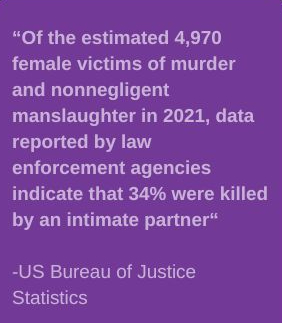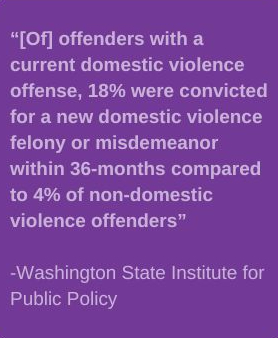According to the World Health Organization, nearly one-third of women worldwide have experienced domestic or sexual violence. With October being domestic violence awareness month now is the time to celebrate those fighting domestic violence within this community.
SafePlace is a nonprofit located in downtown Olympia. It has been combating domestic and sexual violence in Thurston County since its inception in 1981, by providing resources for both escape and recovery.

Health teacher Desi Saylors has worked at the Crisis Clinic of Thurston and Mason Counties. “When people are in [violent] relationships it’s really hard for them to break out,” she explained. “Somewhere like SafePlace, which is a confidential shelter … is oftentimes the only way that someone can find a way out of that … dangerous relationship.”
According to the SafePlace 2023 “Year in Review” report, 1,984 people were turned away from shelters in 2023.
Kayla Voie is the SafePlace Community Services Program Manager. She explained, “our shelter can only house a certain number of people, so when [the shelter] is full or [a person] doesn’t meet the lethality score, we have to turn them away.” Voie added, “We would never turn anyone away without giving them options.”
Leinaala DeBoer, Vice President of the SafePlace Board of Directors, stayed at the shelter when she was ten to escape domestic violence. DeBoer described the experience as “life-changing… and imperative.” She stated, “the fact that we still struggle and still turn people away is devastating.”
To be able to serve more who come to the shelter, Voie emphasized getting individuals to the point where they can safely leave in order to free up room. However, on a non-individual basis, SafePlace would greatly benefit from additional shelter, which Voie says is not currently in the works.
Being a nonprofit, SafePlace relies on government grants and community support, with the former making up 86.5% of SafePlace’s revenue in 2023. However, DeBoer and Saylors agree that this funding is hardly enough.
“It is not an easy world for a nonprofit like SafePlace to find funding. [That] money [is] stretched thin and they often run on fumes” Saylors said.
DeBoer pointed out a disparity in how SafePlace is funded. “We don’t get as much funding from the government as other, smaller organizations … [resources] are going … where the need is not as great as ours.”

The question of funding raises a broader issue: whose responsibility it is to support those experiencing domestic violence? According to Saylors, this is a community problem to solve. “Communities are made up of people and people are in relationships” she argued. “If people are in unhealthy relationships, that impacts all of us.”
Voie pointed out that “most [people] have encountered or experienced domestic violence.” Domestic violence offenders are also more likely to offend again than other violent offenders. Ultimately, domestic violence is too widespread and impactful an issue to be treated as a problem belonging to individuals. Everyone should be doing their share to support SafePlace and organizations like it.
There are a number of ways for high schoolers to show their support for SafePlace and survivors of domestic violence. Primarily, they should become more aware and educated on domestic and sexual violence. As Saylors said, “when we don’t talk about things they go unnamed … our silence is compliance.” Simply acknowledging that these issues still need to be solved goes a long way.
High schoolers should also focus on self-empowerment and being impactful bystanders. According to DeBoer, self-empowerment includes respecting pronouns, boundaries and consenting to physical touch such as hugs or handshakes. Voie stated that being an impactful bystander means acting when there is violence in relationships. It also entails holding people accountable for sexist or homophobic comments and jokes.
For those who want to be more involved with SafePlace itself, DeBoer urges them to reach out to SafePlace and ask how they can be involved. SafePlace also has a peer education group called SPEAK, made up of high school students who get trained in domestic violence and sexual assault and learn to help their peers.
October 17 is “Purple Thursday” or “Go Purple Day,” the national day of action for domestic violence prevention. All bears are encouraged to wear purple as a symbol of domestic violence awareness and dedication.
SafePlace Location: 521 Legion Way SE Olympia, WA
SafePlace Helpline: (360) 754-6300




